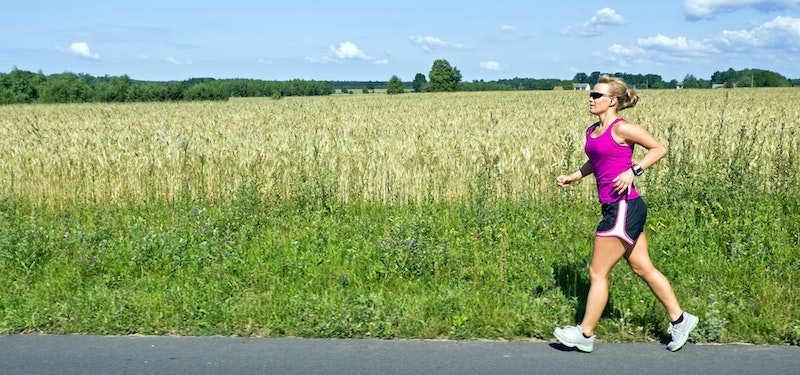Hate the gym? Good news: Walking is good cardio exercise — if you go at a brisk pace of at least 3 miles per hour.
Cardio or aerobic exercise works your large muscles over and over and pushes your heart and lungs to work hard. Over time, this makes your heart stronger — it’s a muscle, after all — and more efficient. This can lower your resting heart rate and blood pressure.
But wait, there’s more! Regular cardio exercise can improve your mood, lower stress, give you more energy and stamina, and sharpen mental focus and memory. It can also help you keep off extra weight, improve your cholesterol, build stronger bones and muscles, and lower your risk of diabetes, stroke, and certain cancers. All that, and it can help you sleep better too.
Here’s why walking is a great way to exercise:
- Except for a good pair of shoes, it won't cost you a thing.
- You can do it anytime, anywhere. No need to pack a gym bag or worry about showering later.
- It's low impact and gentle on your body, so it’s even good for people with arthritis or extra weight.
- Walking in nature is especially good for your mental health. Studies show it boosts your mood and creativity and can even be a form of meditation.
How much to walk
Walking at least 3 miles an hour counts as moderate exercise. You’ll need 2.5 hours of this level every week, so many experts recommend 30 minutes a day, five days a week. You can use our handy exercise log sheet to track your time over a week. If you don’t have a fancy gadget, you’re going at the right pace if you can still carry on a conversation while walking but can’t sing a song. For most people, this is a sign that they’re in their target heart rate zone.
If you’re going 4.5 miles per hour or up a steep hill, that’s vigorous exercise just like running or biking. Just an hour and fifteen minutes of this level of workout each week can improve your health.
Healthy adults should try to get in 10,000 steps over the course of a day. Sound like Mission Impossible? The key is to work your way up to that goal.
If you don’t move much at all, try for 2,000 steps a day at first and add 1,000 steps each week. Next, shoot for 5,000. If your goal is 3 miles a day, that’s about 6,000 steps (the actual distance will depend on your height and stride, or step length). You may be surprised at how quickly your steps add up.
Starting on a walking workout
Your shoes should be lightweight, cushioned, and flexible enough to bend in your hands. If you have flat feet, high arches, or other needs, shop at a store shop with knowledgeable staff. Don’t forget some comfy socks that fit snugly.
A wearable tracker like a Fitbit or Jawbone will log every step you take and can keep you motivated (and you can connect them to your missions on Rally). If you carry your smartphone everywhere, you can try an app like Map My Walk, Pedometer++, or any of hundreds of others. Some newer phones will track your steps even without a special app. If you don’t have a step tracker, it’s roughly 2,000 steps to one mile.
Whether you’re walking outside or on a treadmill, go slow for a few minutes, then pick up the pace. Walk tall with your head up, stomach slightly tight, and shoulders relaxed. Your steps should feel natural and smooth, with your foot rolling from heel to toe. Don’t forget to cool down slowly.
More helpful tips
- You don't have to do all your steps in one go. Everything counts, whether it's walking to your mailbox or going grocery shopping.
- Block off walking time in your daily schedule. Treat it like a meeting so you won't let it slide.
- If your schedule is packed, even 10-minute power walks can help.
- Ask a friend or coworker to be your walking buddy – you'll keep each other on track.
- Music is motivating and keeps your pace steady, but make sure you can still hear traffic.
- In bad weather, walk on a treadmill or in an indoor shopping mall.
Rally tools
Selected references
Centers for Disease Control and Prevention (CDC) Walking Pocket Guide. CDC website.
United States Department of Health and Human Services. 2008 Physical Activity Guidelines for Americans. [Link]
The Compendium of Physical Activities. Website supported by the National Cancer Institute and Arizona State University. [Link]
KARISA DING
Rally Health





